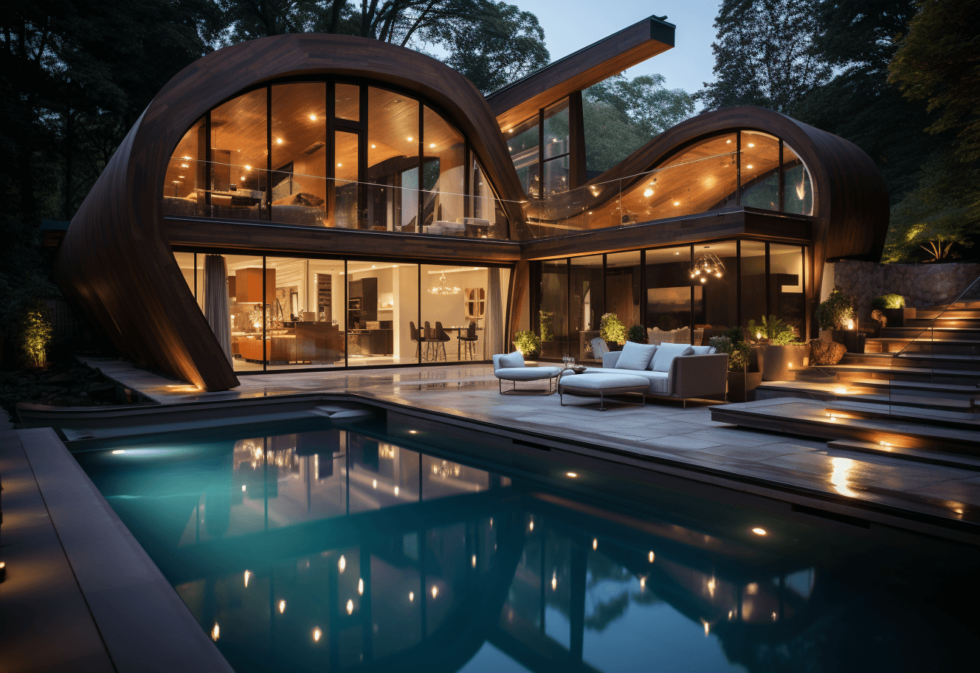If you’re in the market for a new home in the UK, you may be wondering whether or not a timber framed house is a good investment. While there are certainly benefits to buying a timber framed house, there are also some drawbacks to consider. In this article, we’ll take a closer look at the pros and cons of timber framed houses, as well as some of the financial and legal considerations you’ll need to keep in mind.
Timber framed houses are constructed using a wooden frame, as opposed to traditional brick or stone. While these types of houses are less common in the UK, they are becoming increasingly popular due to their sustainability and energy efficiency. However, timber framed houses are also more susceptible to certain types of damage, such as rot and insect infestations, which can be costly to repair.
One of the main benefits of buying a timber framed house is their energy efficiency. Timber is an excellent insulator, which means that these types of houses are often cheaper to heat and cool than traditional brick or stone houses. Additionally, timber framed houses are often less expensive to build than traditional houses, which means that they can be a more affordable option for first-time buyers or those on a tight budget.
While there are certainly benefits to buying a timber framed house, there are also some drawbacks to consider. For example, timber framed houses are more susceptible to certain types of damage, such as rot and insect infestations. Additionally, timber framed houses can be more difficult to insure, as they are considered to be of non-standard construction. Finally, if you’re planning to sell your timber framed house in the future, you may find that it is more difficult to find a buyer than if you had a traditional brick or stone house.
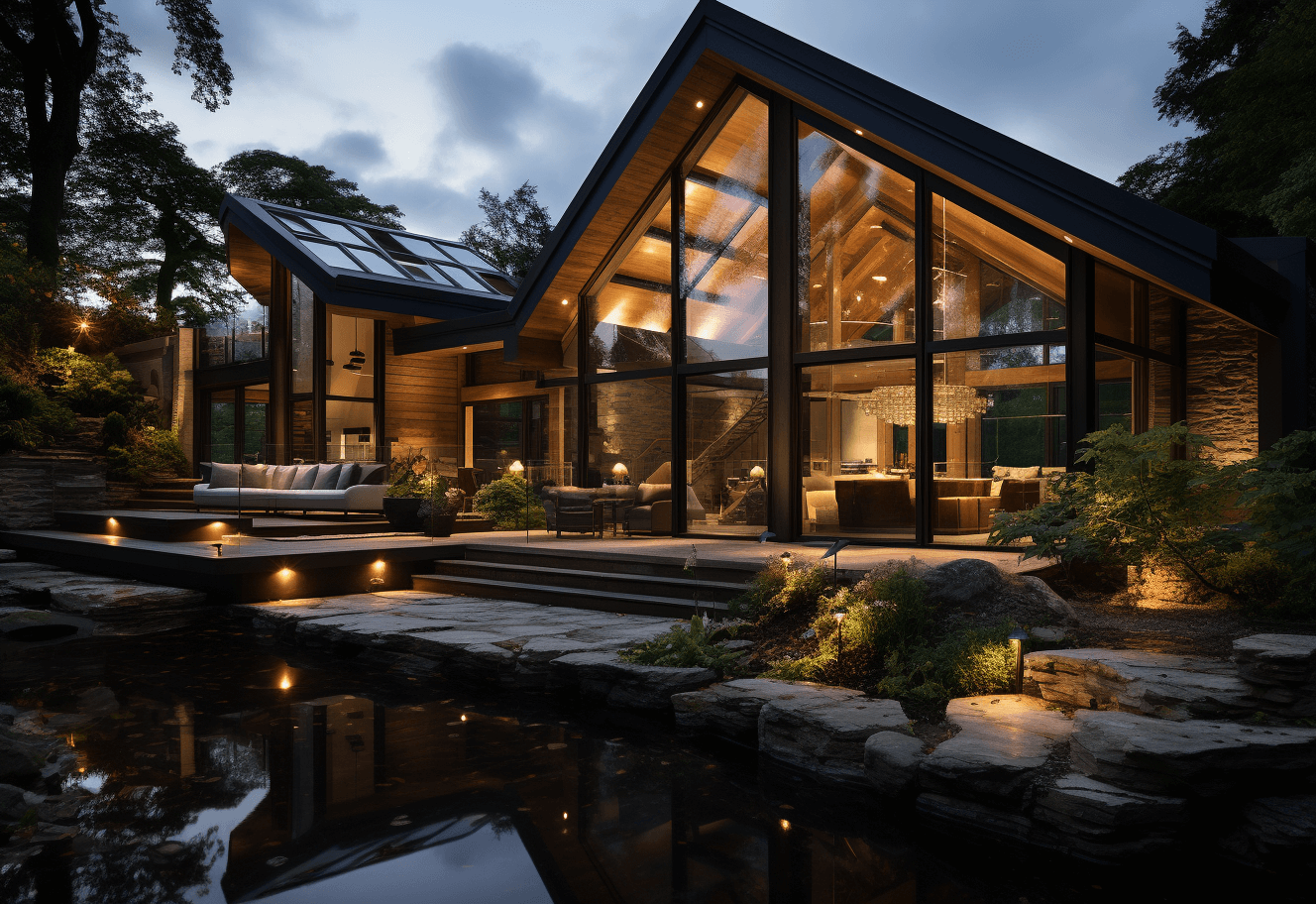
Key Takeaways
- Timber framed houses are becoming increasingly popular due to their sustainability and energy efficiency, but they are also more susceptible to certain types of damage.
- Buying a timber framed house can be a more affordable option for first-time buyers or those on a tight budget, but these types of houses can be more difficult to insure and sell in the future.
- When considering a timber framed house, it’s important to weigh the benefits and drawbacks carefully, as well as to consider financial, legal, and location factors.
Understanding Timber Framed Houses
If you’re considering buying a house in the UK, it’s important to know that timber-framed houses are not as common as brick houses. However, they are becoming increasingly popular due to their energy efficiency, cost-effectiveness, and sustainability.
What is a Timber Framed House?
A timber-framed house is a type of construction where the walls are made of a timber frame, which is then filled with insulation and covered with cladding. The timber frame is made up of vertical posts and horizontal beams that are joined together with pegs or metal brackets.

Advantages of Timber Framed Houses
There are several advantages to buying a timber-framed house, including:
- Energy Efficiency: Timber-framed houses are more energy-efficient than brick houses because they retain heat better. This means that you will spend less money on heating bills in the long run.
- Cost-Effective: Timber-framed houses are often cheaper to build than brick houses because they require less labour and materials.
- Sustainability: Timber is a renewable resource, which means that it can be replenished. This makes timber-framed houses more sustainable than brick houses, which require non-renewable resources like clay and concrete.
Potential Issues with Timber Framed Houses
While there are many advantages to timber-framed houses, there are also some potential issues to be aware of. These include:
- Durability: Timber-framed houses may not be as durable as brick houses, especially if they are old. This is because timber can be susceptible to rot, insect damage, and fire.
- Maintenance: Timber-framed houses require regular maintenance to keep them in good condition. This includes treating the timber with preservatives and checking for any signs of damage.
- Insurance: Some insurance companies may be hesitant to insure timber-framed houses because of the potential for damage. Make sure to check with your insurance provider before buying a timber-framed house.
Overall, timber-framed houses can be a great option for those looking for an energy-efficient, cost-effective, and sustainable home. However, it’s important to be aware of the potential issues and to do your research before making a decision.
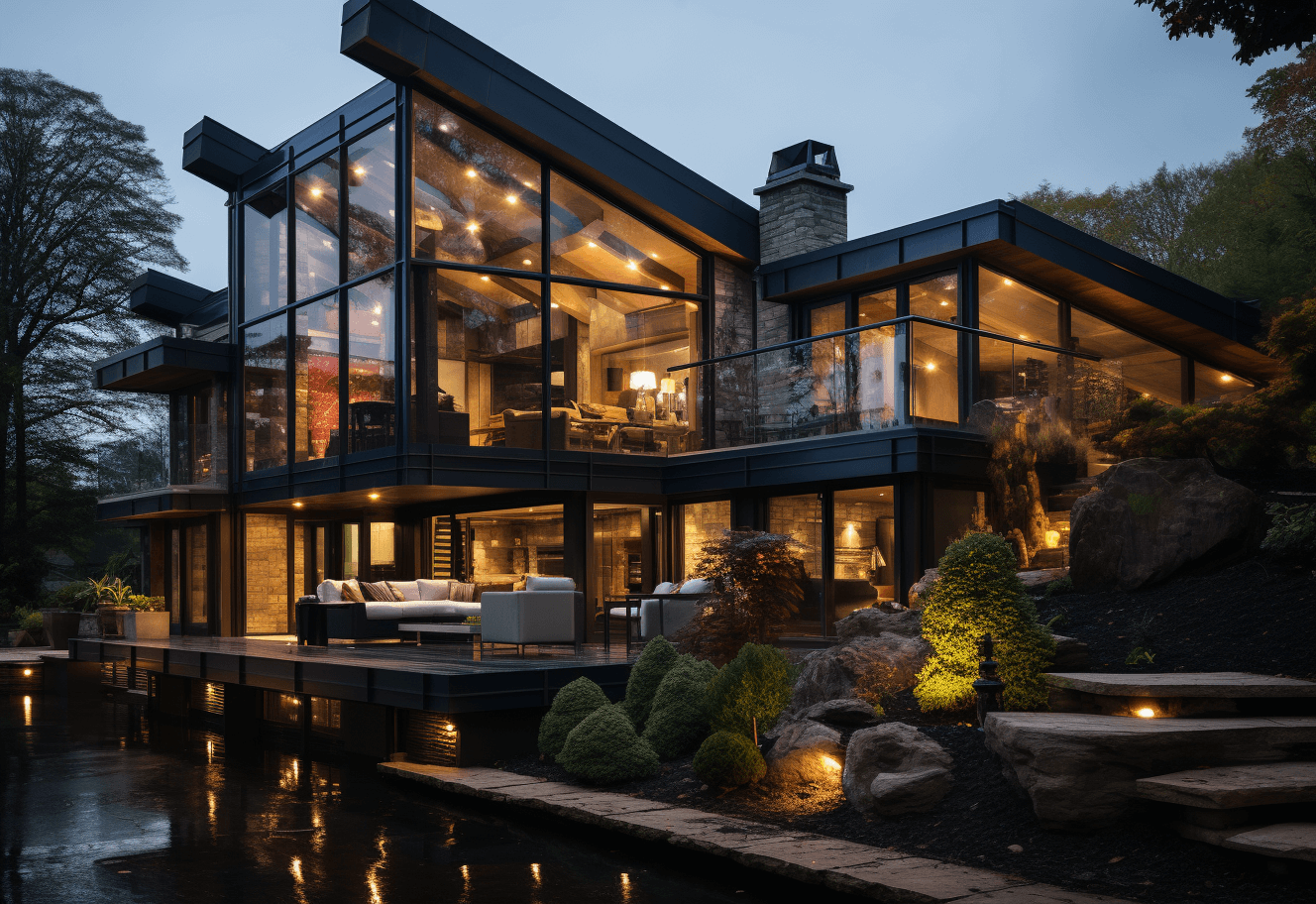
Benefits of Buying a Timber Framed House
If you are considering buying a house in the UK, you might want to consider a timber framed house. There are several benefits to buying a timber framed house, including energy efficiency, quick construction, and flexibility in design.
Energy Efficiency
One of the biggest advantages of timber framed houses is their energy efficiency. Timber is a natural insulator, which means that it can help keep your home warm in the winter and cool in the summer. This can help reduce your energy bills and make your home more environmentally friendly.
Timber framed houses are also more airtight than traditional brick houses, which means that they are less likely to have drafts. This can help keep your home comfortable and reduce your heating and cooling costs.
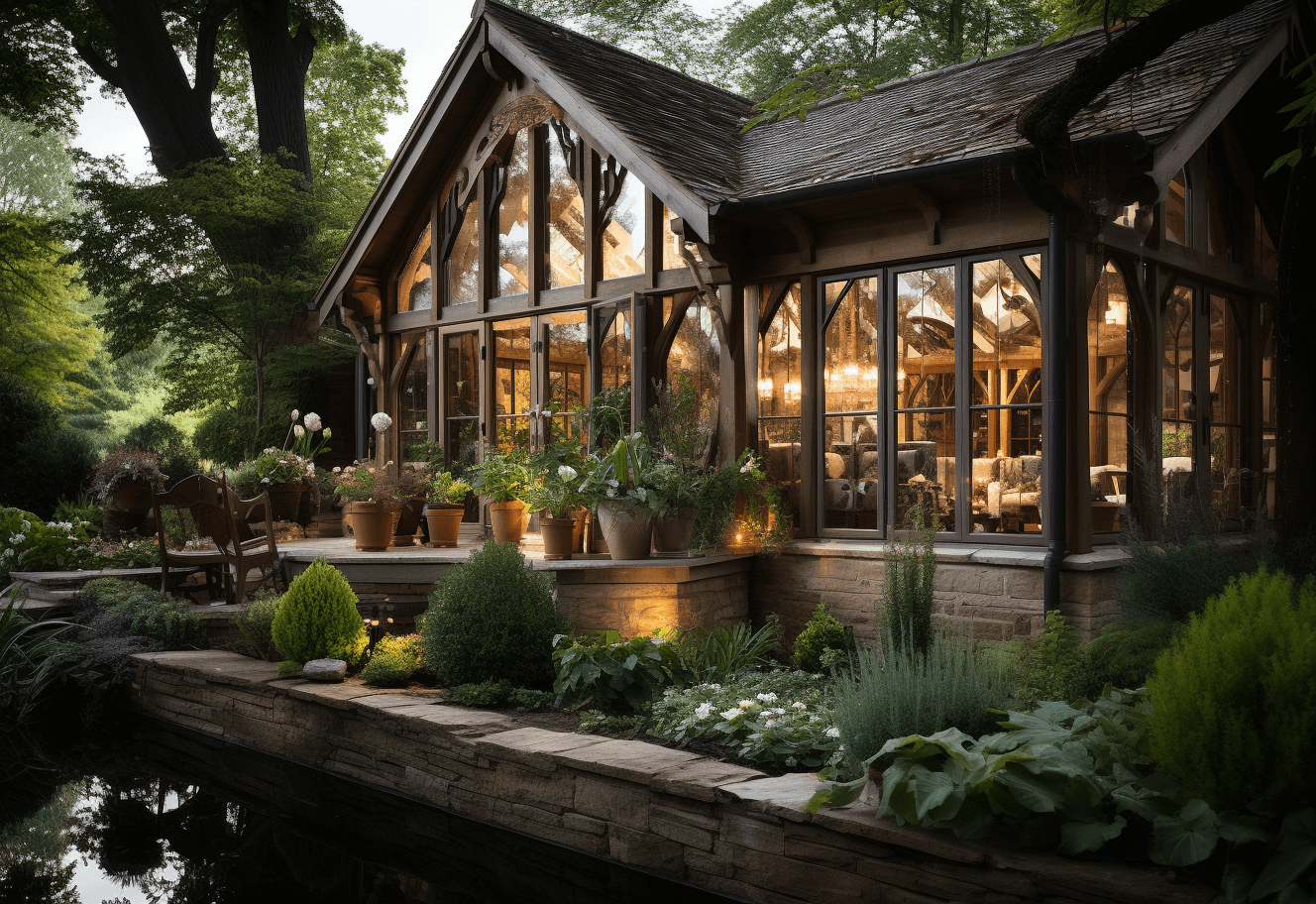
Quick Construction
Another advantage of timber framed houses is that they can be built quickly. Because timber is a lightweight material, it is easier and faster to work with than traditional brick and mortar. This means that your home can be built in a shorter amount of time, which can be beneficial if you need to move in quickly. Ask the builder right question to ensure your home meets the regulation.
Flexibility in Design
Timber framed houses offer a lot of flexibility in design. Because timber is a versatile material, it can be used to create a wide range of architectural styles. This means that you can choose a design that suits your personal taste and preferences.
In addition, timber framed houses can be easily modified or extended. This means that if you want to add an extra room or change the layout of your home, it can be done quickly and easily.
Overall, buying a timber framed house in the UK can offer a range of benefits, including energy efficiency, quick construction, and flexibility in design. If you are considering buying a house, it is worth exploring the option of a timber framed house.
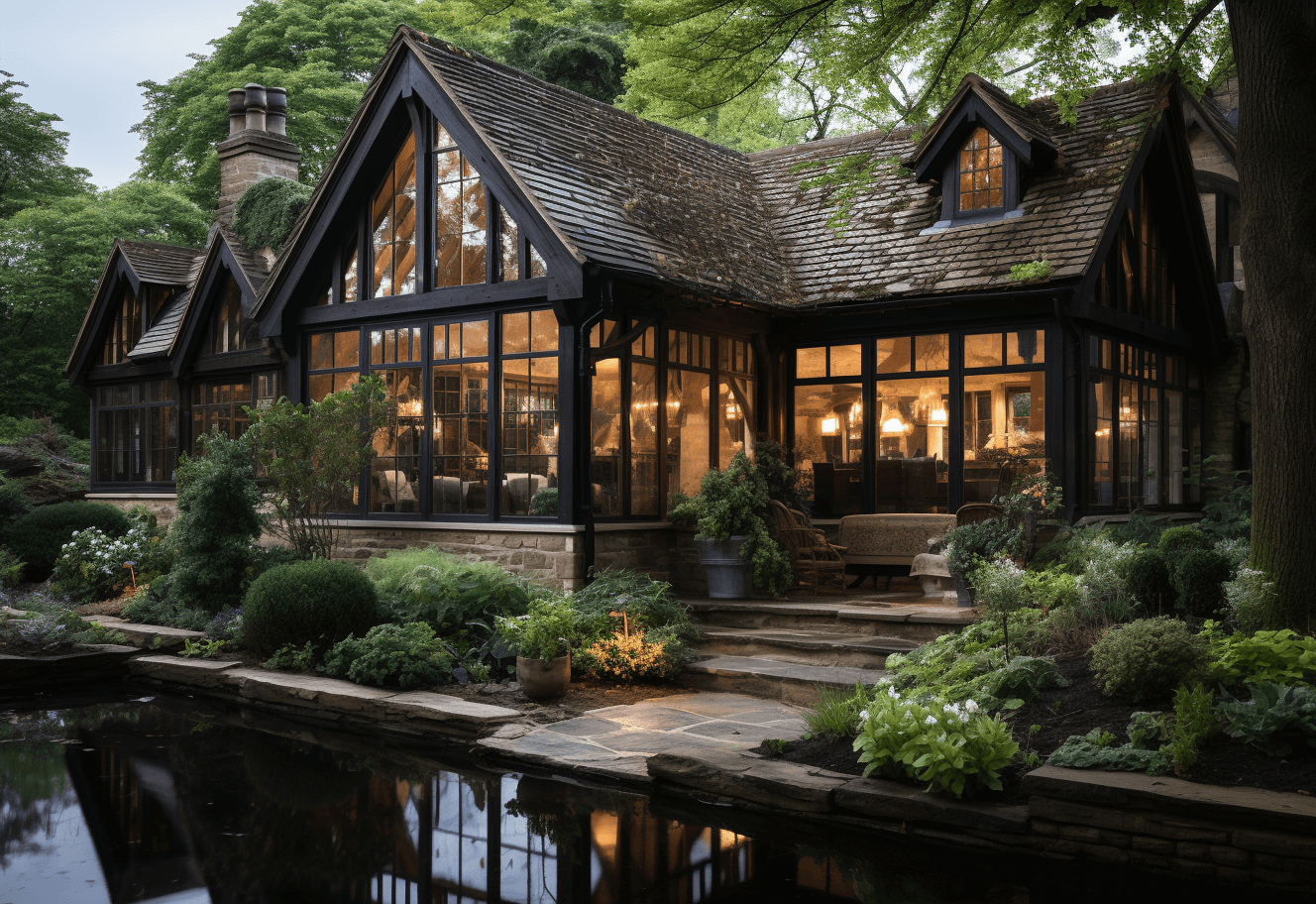
Drawbacks of Buying a Timber Framed House
When considering buying a timber framed house, it is important to be aware of the drawbacks that come with this type of construction. While there are many benefits to buying a timber framed house, there are also some potential downsides that you should be aware of before making a decision.
Maintenance
One of the main drawbacks of buying a timber framed house is that it requires more maintenance than a traditional brick or block house. Timber is a natural material that is susceptible to rot, decay, and insect infestation. As a result, you will need to regularly inspect and maintain the timber frame to ensure that it remains in good condition.
This can involve tasks such as repainting or re-staining the timber, replacing damaged or rotten wood, and treating the timber frame with insecticides to prevent infestations. While regular maintenance can help to prolong the life of the timber frame, it can also be time-consuming and expensive.
Insurance Considerations
Another potential drawback of buying a timber framed house is that it can be more difficult and expensive to insure. Some insurance companies view timber framed houses as a higher risk than traditional brick or block houses, due to the increased risk of fire and water damage.
As a result, you may need to pay higher insurance premiums or take out specialist insurance to cover your timber framed house. Before buying a timber framed house, it is important to check with your insurance provider to see what their policy is on insuring timber framed properties.
Resale Value
Finally, it is worth considering the potential impact that owning a timber framed house could have on its resale value. While timber framed houses are becoming increasingly popular in the UK, they may still be seen as less desirable than traditional brick or block houses by some buyers.
This could mean that it takes longer to sell your property, or that you receive lower offers than you would for a similar property that was constructed from brick or block. While this may not be a concern for everyone, it is worth keeping in mind if you are planning to sell your property in the future.

Financial Considerations
When considering whether to buy a timber-framed house in the UK, financial considerations are likely to be at the forefront of your mind. In this section, we’ll explore some of the key financial factors you should take into account before making a decision.
Cost Comparison
One of the main reasons people consider timber-framed houses is that they can be cheaper to build than traditional brick and block houses. However, it’s important to note that the cost of buying a timber-framed house can vary depending on a range of factors, including the location, size, and quality of the property.
To get a sense of the cost comparison between timber-framed and traditional houses, you may want to consult with a local estate agent or property expert. They can help you understand the average cost of timber-framed houses in your area, as well as any potential savings or additional costs associated with this type of property.
Long-Term Investment
Another important financial consideration when buying a timber-framed house is the long-term investment potential. While a timber-framed house may be cheaper to build, it’s important to consider the potential resale value of the property.
One potential advantage of timber-framed houses is that they are often more energy-efficient than traditional houses, which can help to reduce your ongoing energy bills. Additionally, timber-framed houses can have a lower carbon footprint than traditional houses, which may be an attractive selling point for environmentally conscious buyers.
Of course, there are also potential disadvantages to consider when it comes to the long-term investment potential of timber-framed houses. For example, some buyers may be put off by the perceived risk of fire or termite damage associated with this type of property.
Ultimately, the long-term investment potential of a timber-framed house will depend on a range of factors, including the location, quality, and upkeep of the property. It’s important to consider all of these factors carefully before making a decision.

Location and Climate Factors
When considering buying a timber framed house in the UK, it’s important to take into account the location and climate factors. The suitability of timber framed houses may vary depending on where you are in the country and what weather conditions you can expect.
Coastal Areas
If you’re looking to buy a timber framed house in a coastal area, it’s important to consider the effects of salt spray on the timber. Salt spray can cause timber to deteriorate more quickly than in other areas, so it’s important to ensure that the timber used in the construction of the house is treated appropriately to withstand these conditions. You may want to consider using hardwood timber or choosing a different construction material altogether if you’re concerned about the effects of salt spray.
High Wind and Rainfall Areas
If you’re considering buying a timber framed house in an area with high wind and rainfall, you’ll want to ensure that the house is designed and constructed to withstand these conditions. Timber framed houses can be designed to be highly durable and resistant to wind and rain, but it’s important to choose a reputable timber builder with experience in constructing timber framed houses in these conditions.
Cold and Damp Areas
In cold and damp areas, it’s important to ensure that the timber used in the construction of the house is treated appropriately to prevent rot and decay. You may also want to consider using insulation to prevent heat loss and damp from affecting the timber. Additionally, it’s important to ensure that the house is well-ventilated to prevent moisture build-up.
Hot and Dry Areas
In hot and dry areas, timber framed houses can be an excellent choice. Timber has natural insulating properties that can help keep the house cool in hot weather. However, it’s important to ensure that the timber used in the construction of the house is treated appropriately to prevent warping and cracking in the hot and dry conditions.
Overall, the location and climate factors are important to consider when deciding whether to buy a timber framed house in the UK. By taking these factors into account and choosing a good builder with experience in constructing timber framed houses in your chosen location, you can enjoy the many benefits of this sustainable and eco-friendly construction material.

Legal and Planning Permission Considerations
When it comes to buying a timber framed house in the UK, there are a number of legal and planning permission considerations you need to be aware of. These include:
Building Regulations
Building regulations are different from planning permission and must be adhered to when constructing or renovating a building. Timber framed houses are subject to specific building regulations, which ensure that the building is structurally sound, fire-resistant, and energy-efficient. It is important to ensure that any timber framed house you are considering purchasing has been built to meet these regulations.
Planning Permission
Planning permission is required by law for most building projects in the UK. This includes timber framed houses. The local council will assess the proposed development and decide whether it is suitable for the area. It is important to ensure that any timber framed house you are considering purchasing has been granted planning permission.
Listed Buildings
If the timber framed house you are considering purchasing is a listed building, there are additional considerations to take into account. Listed buildings are protected by law and any alterations or renovations must be approved by the local council. It is important to ensure that any proposed changes to a listed timber framed house have been approved before proceeding.
Insurance
Timber framed houses are classified as non-standard construction and may require specialist insurance. It is important to ensure that any insurance policy you take out covers the unique characteristics of a timber framed house.
Resale Value
It is important to consider the potential resale value of a timber framed house. While timber framed houses can be desirable, they may be less popular with some buyers due to concerns about durability and maintenance. It is important to research the local property market and consider the potential resale value before purchasing a timber framed house.
Overall, while there are legal and planning permission considerations to take into account when purchasing a timber framed house, with careful research and planning, they can be a unique and desirable property option.

So should you buy a timber framed house in UK?
In conclusion, buying a timber framed house in the UK can be a great option for those who are looking for a sustainable and energy-efficient home. Timber framed houses have come a long way in recent years and are now considered a viable alternative to traditional brick houses.
When deciding whether to buy a timber framed house, it’s important to consider the benefits and drawbacks. Timber framed houses are typically quicker to build and more energy-efficient than traditional brick houses. However, they may be more expensive to insure and some lenders may not offer mortgages for timber framed houses.
If you do decide to buy a timber framed house, it’s important to ensure that it has been built to a high standard and meets all relevant building regulations. You should also consider getting a level 3 building survey to ensure that there are no issues with the construction of the house.
Ultimately, the decision to buy a timber framed house will depend on your individual circumstances and preferences. If you are looking for a sustainable and energy-efficient home that can be built quickly, a timber framed house may be the right choice for you. However, if you are concerned about the cost of insurance or the availability of mortgages, you may want to consider other options.
